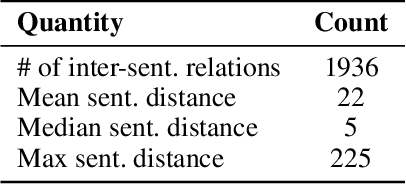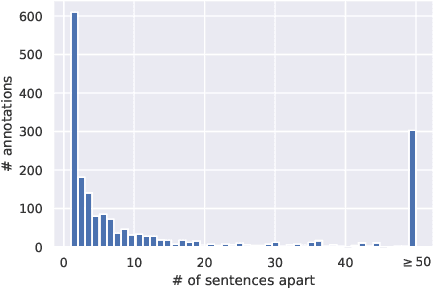Peter M. Lovett
Neural Architectures for Biological Inter-Sentence Relation Extraction
Dec 17, 2021



Abstract:We introduce a family of deep-learning architectures for inter-sentence relation extraction, i.e., relations where the participants are not necessarily in the same sentence. We apply these architectures to an important use case in the biomedical domain: assigning biological context to biochemical events. In this work, biological context is defined as the type of biological system within which the biochemical event is observed. The neural architectures encode and aggregate multiple occurrences of the same candidate context mentions to determine whether it is the correct context for a particular event mention. We propose two broad types of architectures: the first type aggregates multiple instances that correspond to the same candidate context with respect to event mention before emitting a classification; the second type independently classifies each instance and uses the results to vote for the final class, akin to an ensemble approach. Our experiments show that the proposed neural classifiers are competitive and some achieve better performance than previous state of the art traditional machine learning methods without the need for feature engineering. Our analysis shows that the neural methods particularly improve precision compared to traditional machine learning classifiers and also demonstrates how the difficulty of inter-sentence relation extraction increases as the distance between the event and context mentions increase.
 Add to Chrome
Add to Chrome Add to Firefox
Add to Firefox Add to Edge
Add to Edge